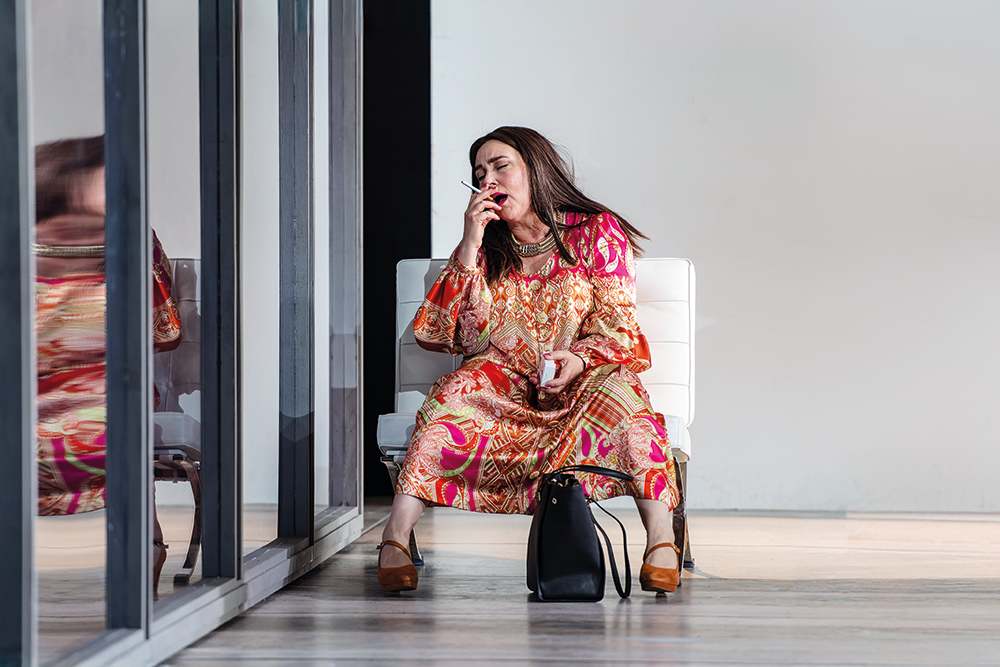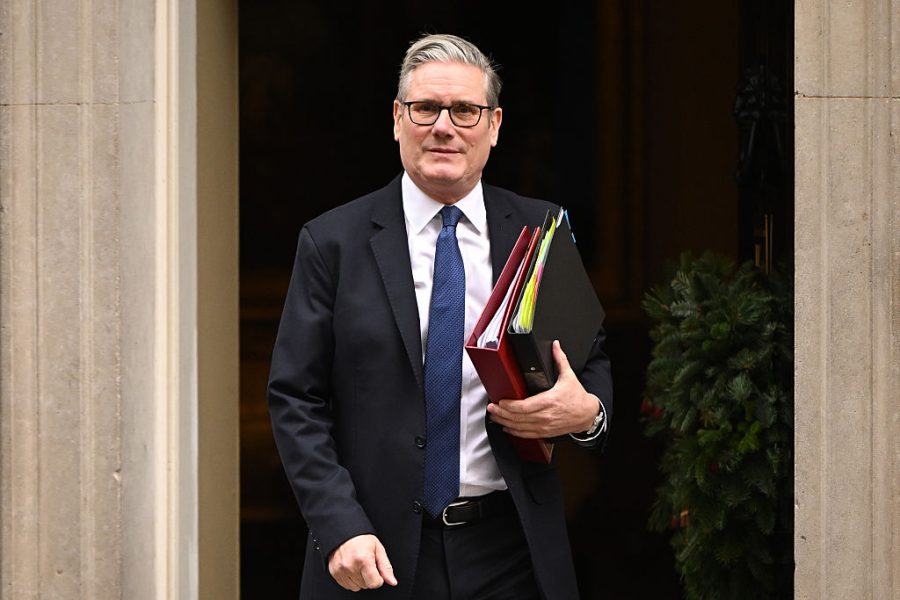Hang out with both trainspotters and opera buffs and you’ll soon notice that opera buffs are by far the more trainspotterish. It’s the pedantry, the one-upmanship (‘Really? You should have heard it with Goodall in 1976’). Above all, it’s the impulse to collect. You can’t actually buy little pocket books with lists of obscure operas to be underlined in biro once you’ve seen them (blue for a full staging, red for a concert performance) but there are certainly opera-goers who compile their own lists of personal stats – and they let you know it. The completist urge is powerful. Hardcore opera-spotters will cheerfully cross continents to cop a rare performance of Schreker’s Der Schatzgräber or César Franck’s Hulda.
You can tick Un giorno di regno off your list with genuine pleasure
Anyway: good news, opera nerds, because this year’s summer season offers two highly collectable bits of rep. First up is Garsington, where the surprise hit of the season is Verdi’s early flop Un giorno di regno, in a sparky and often hilarious new staging by Christopher Alden. This was Verdi’s second opera and it ran for precisely one night in 1840 before being pulled. Only the fact that he was under contract persuaded Verdi not to quit opera altogether; which is fortunate because his next effort was Nabucco. But Un giorno di regno was consigned to the dustbin of history and for opera buffs that’s great because it allows them to demonstrate their superior discernment: ‘What, you don’t know it? It’s actually rather good.’
In truth it’s merely adequate, in a Donizetti-plus-Red-Bull sort of way, but Alden and his cast sell it like it’s a masterpiece. The 18th-century setting is updated to the present day and the blingy marble-clad foyer of Baron Kelbar’s armaments firm, complete with gun-toting security goons and a video wall which Alden uses to clarify the twists and turns of the plot via the medium of rolling news. Nice touch. Along the way, there’s a karaoke sequence, two old men in their underwear fight a duel with spaghetti, and Joshua Hopkins – playing the bogus monarch of the title – goes full Freddie Mercury. Cue crotch-grabs, pink ermine and the mother of all fake moustaches.
Silly? Sure. Inauthentic? Not really: a comic opera aims for laughs and Alden’s production gets lots, where Verdi himself only got catcalls and boos. It even manages to generate a sense of urgency in the extended – some might say over-extended – finale (no spoilers but it involves an Amazon delivery). Musically, it’s excellent. The cast have a lot of fun, whether the bickering odd couple of Baron Kelbar (Henry Waddington) and La Rocca (Grant Doyle); Christine Rice as the Marchesa – a nicotine patch-slapping cougar with a suitably bulletproof voice – or the emo-chick stylings and bright, tangy soprano of Madison Leonard as Giulietta. The take-home voice is probably Hopkins’s rich, swaggering baritone, but there aren’t any weak links here, really. The chorus is lusty and the Philharmonia sounds bright and trim under Chis Hopkins (who’d stepped in at short notice). You can tick Un giorno di regno off your list with genuine pleasure.
The other juicy rarity is Puccini’s Edgar – another notorious fiasco, subsequently dismissed by its composer as ‘warmed-up soup’. This kind of thing has historically been catnip to Opera Holland Park, which has a tradition of exhuming verismo-adjacent turkeys like Mascagni’s Isabeau and loving them not wisely, but very well. Where the music (or more usually, the drama) is deficient, OHP typically wins through with a well-chosen cast and sheer starry-eyed enthusiasm.
I’ve rarely seen an Opera Holland Park production look so half-hearted
Not this time: I’ve rarely seen an OHP production look so half-hearted. Puccini’s score is lovely, if slightly limp, and there’s a moment in Act Two where he sounds like he’s about to launch into ‘E lucevan le stelle’, but doesn’t. It’s played well (Naomi Woo conducts) and it’s largely sung well, with Gweneth Ann Rand tender and compassionate as the temptress (it’s that kind of libretto) Tigrana and Anne Sophie Duprels suitably luminous as her virginal rival (again: that kind of libretto) Fidelia. Peter Auty doesn’t look or sound right as the conflicted Edgar (hot sex or pious devotion?), but he has such stage presence, and shapes a melody so instinctively, that it works regardless.
So you can’t blame the cast, and you can’t honestly blame the risible libretto (though Puccini certainly did). Directors are there to fix dramatic problems, and it didn’t feel as if the director here – Ruth Knight – was really trying. Tigrana wasn’t remotely sensual, Fidelia was barely there at all and Edgar (a tougher nut to crack) was a lust-crazed jerk rather than a Byronic hero. With desultory characterisation and the design values of an after-school drama club, this semi-staging looked more like an under-rehearsed concert performance. Weak operas need more help, not less, but OHP hung Edgar out to dry.







Comments